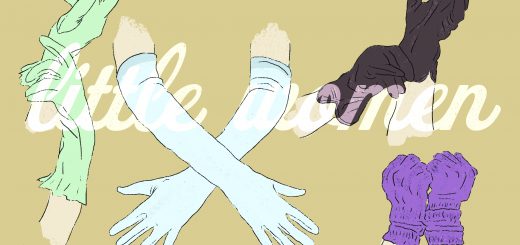Canadians travelled in droves over the holidays despite COVID-19 — including those in positions of power

By Noel Harper, News Editor
After it was first discovered in December 2019, the COVID-19 virus was spread throughout the world, in large part, through travel. In response, many travel-related recommendations and restrictions have been put in place at provincial and federal levels in Canada.
One year after its discovery, COVID-19 has halted a great deal of international travel between hard-hit countries — with certain exceptions. For example, while the Canada-U.S. land border has been closed to non-essential travel since March, the U.S. and other locales, remain very much accessible to Canadians travelling for non-essential reasons by air.
Alberta’s COVID-19 policy on international travel remains a recommendation, rather than an enforceable restriction. “An official global travel advisory remains in effect. Avoid non-essential travel outside Canada until further notice,” reads a statement on the Government of Alberta’s website.
This advisory did not stop several members of the Alberta provincial government, as well as other provincial governments, from jet-setting for the holidays, ultimately putting the question of holiday travel front and centre for many Albertans.
Between December 2020 and the start of January 2021, the Calgary International Airport saw more than 2,500 travellers to Hawaii alone, out of 4,000 Canadians who visited the tropical American state during this time. Alberta Premier Jason Kenney estimated that “tens of thousands of Albertans are currently out of the province” during a Jan. 1 news conference.
The Reflector asked Mount Royal University (MRU) if any members of the institution’s executive leadership, General Faculties Council or other high-ranking individuals within its governance traveled out of the province or the country in December 2020.
“The president and three vice-presidents refrained from non-essential travel during the holiday period. Staff, faculty and students at Mount Royal are free to make their own decisions during their personal time,” a statement from MRU read in part.
The same, however, cannot be said about all of MRU’s post-secondary counterparts.
Santa Ono, president of the University of British Columbia (UBC), travelled to Baltimore in December due to family health concerns. The director of UBC’s School of Population and Public Health, as well as the dean of medicine and vice president of health, also travelled internationally over the holiday period to Hawaii and Ireland respectively.
“British Columbians have been advised to avoid travel within the province or outside of the province at this time … it is requested that you do not travel to other regions unless it is essential,” reads a B.C. Centre for Disease Control statement on travel during the COVID-19 pandemic.
While the advice is similar to that of Alberta’s, B.C. further breaks down the difference between essential and non-essential travel. The former includes travelling to care for sick family members, while the latter “is travel for tourism, entertainment, or recreation.”
“Mount Royal University takes the health of our campus community seriously and has gone above provincial regulations to reduce the spread of COVID-19 … MRU expects everyone in its campus community to follow the AHS and the University’s health guidelines and regulations,” MRU’s statement to The Reflector continues.
As of late November, MRU reported 13 COVID-19 cases in students with a connection to the university since the start of the pandemic — before an outbreak within the Cougars men’s hockey team led to an additional 18 cases amongst players and staff.
Several members of Alberta’s United Conservative Party caucus, and other senior government employees, left Canada over the holiday period — after they returned, they faced varying consequences to their decisions.
Tracy Allard, Alberta’s Minister of Municipal Affairs and one of the first international travellers in the caucus to be revealed, stepped down from the position after travelling to Hawaii with her family. The MLA for Grande Prairie held the position for just 131 days, being appointed following an August 2020 cabinet shuffle.
Kenney’s Chief of Staff, Jamie Huckabay, also stepped down from his position following a trip to the United Kingdom. Joining Allard in travelling to Hawaii was Jeremy Nixon, MLA for Calgary-Klein. MLA’s Pat Rehn (Lesser Slave Lake) and Tany Yao (Fort McMurray-Wood Buffalo) set off for Mexico, while Tanya Fir (Calgary-Peigan) visited Las Vegas, and Jason Stephan (Red Deer-South) travelled to Arizona.
All told, the only traveller to entirely lose a job was Huckabay. The MLAs in question will remain as representatives, having lost only legislature committee responsibilities in the wake of the travel controversy. Nixon will no longer serve as Alberta’s Parliamentary Secretary for Civil Society, nor will Stephan sit on the treasury board.
“Albertans have every right to expect that people in positions of public trust be held to a higher standard of conduct during the COVID-19 pandemic … by travelling abroad over the holidays, these individuals demonstrated extremely poor judgement,” Kenney said in a statement responding to the controversy.





